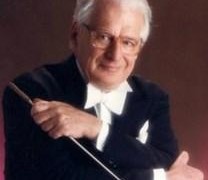The Hollywood star is stepping down after ten years as artistic director. His successor will be Matthew Warchus.

The Hollywood star is stepping down after ten years as artistic director. His successor will be Matthew Warchus.

This is truly mind-bending
The Seaboard Grand, a rubbery keyboard that allows you to bend sound any way which way you like, launches tonight at Abbey Road with £7.6 million in venture capital. It’s a genuine British invention.
Now, where can I lay hands on one?
I need it now.

press release:
London music start-up ROLI, whose award-winning product, the Seaboard GRAND, met with unexpectedly strong demand creating waiting lists of up to a year, is now poised to scale production and expand globally.
ROLI today announces a $12.8m (£7.6m) Series A, one of the largest ever for a music hardware company, to fuel increased production and significant growth of its leadership and product engineering teams. The financing is led by Balderton Capital (investors in LoveFilm and Kobalt Music Group), alongside FirstMark Capital (investors in Pinterest and Shopify), Index Ventures (investors in Sonos and SoundCloud), as well as strategic investor Universal Music (the world’s leading music company). As part of the financing, Daniel Waterhouse from Balderton and Amish Jani from FirstMark join the board of directors.
ROLI’s flagship product, the Seaboard GRAND, is a radical reimagining of the keyboard that enables musicians to make music in ways that were never before possible. It has earned rave reviews, hailed as “the piano of the future” (CNN) and called “influential, innovative,” and “ingenious” (The Telegraph). The Seaboard GRAND has also won multiple awards, including the SXSW Music Accelerator in 2013, and more recently the product category of the Design Museum’s 2014 Design of the Year Award, beating leading international hardware companies such as Nest and GoPro. With orders from 34 countries, the Seaboard GRAND is now shipping and available for sale atwww.roli.com/seaboard
ROLI founder and CEO, Roland Lamb, said, “This capital will enable us to scale production capacity to meet growing demand, build our team, and accelerate our product roadmap. The Seaboard is just the first in a line of breakthrough music hardware and software products, and the investment will speed development of core platform products like our sound engine Equator. Ultimately, ROLI’s mission is to create new interfaces that expand the bandwidth of interaction between people and technology, and this financing is a major step towards realising that goal.”
Lamb followed an untraditional path to spearheading a high-growth technology company. He studied Classical Chinese and Sanskrit Philosophy at Harvard, lived in a Zen monastery in Japan, and worked as a gigging jazz pianist. He invented the Seaboard in 2009 while studying design under Ron Arad at the Royal College of Art, and developed a working prototype in his spare room before receiving the first angel funding for ROLI in 2012.
The ROLI team has grown from three people two years ago to 33 today. Lamb said, “We’re looking for inventors, designers, and entrepreneurs who are passionate about changing how we interface with technology to come join our unique working culture and help us forge the future of interaction. And we’re thrilled to begin working with superlative partners on both sides of the Atlantic – Balderton and Index here in London, and FirstMark in New York. Our partners bring a depth of expertise that will be invaluable as we disrupt the music industry and expand our marketplace and presence especially into the US.”
Daniel Waterhouse of Balderton said, “Roland and the team have developed a truly innovative and inspirational first generation of products, combining design, technology and a re-imagining of the user interface for creating music. ROLI is further evidence of the unique fusion of skills that can be found building a new generation of technology companies in London. We’re delighted to be backing such a ground-breaking company.”
ROLI will celebrate this milestone with an exclusive event on the 22nd of May to showcase the Seaboard GRAND at Abbey Road Studios, one of the most innovative studios in recording history, and now a part of Universal Music. Universal Music Group’s Head of Corporate Development Jeremy Erlich said, “Roland and his team have built an incredible product that opens up new possibilities for music creators. We’re very excited to be invested in ROLI alongside some wonderful partners in Balderton, FirstMark and Index and to be announcing this in the iconic Abbey Road Studios.” The evening will take place in Studio 2, where artists such as The Beatles and Pink Floyd have recorded, and will feature the first-ever performance of a Seaboard ensemble.
About ROLI
ROLI is a design-led music technology start-up based in Dalston, London. ROLI makes hardware and software products designed to increase the bandwidth of interaction between people and technology.
ROLI’s first product, the Seaboard GRAND, is a radically new musical instrument that reimagines the piano keyboard as a soft, continuous surface. The Seaboard’s polyphonic pitch bend, vibrato and per-note dynamic changes are all available at the user’s fingertips, marrying the intuitiveness of a traditional instrument with the versatility of digital technology. ROLI has brought together years of innovation in several disciplines to realise this powerful concept as an award-winning product. Learn more atroli.com
We reported earlier that there were no US or UK finalists in the Reine Elisabeth singing competition in Brussels. There are no Australians, Canadians or Africans, either. No Russians. No East Europeans.
What kind of ‘international’ competition is that?
Are we to believe that the greatest concentration of singing talent is now to be found in South Korea and… er, Belgium?
Apparently no Americans applied and only one Brit put in, deterred by the high cost and the likelihood of a warped verdict.
A Slippedisc.com observer tells us: It is very obvious that the jury has made some funny decisions. From the beginning there were singers with really bad pitch coming through, singers who had trouble getting to the end of their arias, but were pretty young women. Some of the competitors pumped the press with PR-driven interviews so that the audience applauded them frenetically even before they sang.
It cannot be coincidence that of 12 finalists three are Belgians , and two more study in Brussels.
Small-town stuff, then. Not really an international competition.

Max Hole, Chairman and CEO of Universal Music Group International, the world’s biggest music company, has been giving an analysis in Singapore of the present state of play in the industry.
Highlights:
– ‘In the last 50 years the music industry has made 80 per cent of its money in about 10 countries, and too much of our money in Asia with artists from outside the region. In the next 30 years I believe this has to change. The 80/10 split is bad for business, bad for artists and bad for fans. The real opportunity is turning the 80/10 into something more evenly balanced. Indonesia, China and India are key markets for us in achieving this.’
– ‘The Chinese have virtually bypassed the business model that we came to rely on so effectively in the West and Japan over the past 50 years. The traditional model of purchasing musical product, be it physical or digital, has never really existed in China on any major scale. The market is moving straight to one where it’s all about securing access to tracks. We are in the middle of an extraordinary transition and it’s very exciting to be part of it.’
– ‘China is not only the world’s largest country, it is also the world’s biggest experiment in testing the new business models of the future.’
Full release below.

SINGAPORE, 22 MAY 2014 — Music fans across Asia and the way they consume music are poised to become major drivers of the music industry in the 21st century said Max Hole, Chairman and CEO of Universal Music Group International, in his keynote speech this morning at Music Matters, Asia’s leading music business event.
Asia accounts for 60% of the world’s population and yet music sales in the region have to date accounted for less than a quarter of the global market, and mostly from one country, Japan. However today’s rapidly developing digital and access models mean that the music industry has a once in a generation opportunity to foster dynamic and growing music markets that reflect the region’s size and cultural importance.
Hole argued that China is in the position of being able to jump straight to the next stage in the evolution of music consumption behaviour. “When I look at the Chinese music industry, despite its difficult past, I see the future,” said Hole. “China is not only the world’s largest country, it is also the world’s biggest experiment in testing the new business models of the future.
“The Chinese have virtually bypassed the business model that we came to rely on so effectively in the West and Japan over the past 50 years. The traditional model of purchasing musical product, be it physical or digital, has never really existed in China on any major scale. The market is moving straight to one where it’s all about securing access to tracks. We are in the middle of an extraordinary transition and it’s very exciting to be part of it.”
Hole argued that across Asia, the fundamental challenge is building strong music eco-systems to fund the development of local talent – something that requires a new approach from business, consumers and governments. “As an industry, China is our billion people challenge,” said Hole. “If we touch all of these consumers, just once a year, in some form, then we will generate more Yuan to re-invest in China and build our businesses.”
For Chinese music to become globally successful Hole explained that there are three key areas that need to be addressed: “We have to work together to secure the support that we need from business partners, regulators and business; we cannot make short-term deals which secure jam today and store-up problems tomorrow; and we have to remember that if we deliver good Chinese music in an environment where it can be bought easily, cheaply and legally, then we will all prosper.”
Hole spoke about how weak local ecosystems mean low investment in local talent. “We are determined to help local artists make a business they can be proud of,” he said. “In the last 50 years the music industry has made 80 per cent of its money in about 10 countries, and too much of our money in Asia with artists from outside the region. In the next 30 years I believe this has to change. The 80/10 split is bad for business, bad for artists and bad for fans. The real opportunity is turning the 80/10 into something more evenly balanced. Indonesia, China and India are key markets for us in achieving this. ”
On Japan, Hole discussed how the largest music market in Asia is “Unique and remarkable in many ways,” from being the home of innovations such as the ‘360 degree’ business relationship to the presence of retail price maintenance and the current difficult transition to new digital-led areas of growth.
“Now is the time to innovate, take some chances and truly welcome the digital revolution,” said Hole. “A healthy Japan means a healthy global record business. It is imperative that we all work together – record companies, artist management companies and music platforms – to revitalise the business.”
The building, close to Assad’s Ministry of Defence, has come under fire several times from both sides in Syrian’s three-year civil war. Artists and teachers have been killed and wounded. Yet, the music plays on. Click here for full story and video.

We’re delighted to find Jonny Greenwood’s Suite from There Will Be Blood in the coming season’s MusicNOW program.
Also in the lineup are an Anna Clyne world premiere (go, Anna!) and a splash of John Zorn.
They’ve come a long way since the Solti days. Details below.

| MusicNOW Synchronicity |
Monday, September 29, 2014 at 7 p.m. James Feddeck, conductor CHEUNG SynchroniCities |
| MusicNOW There Will Be Blood |
Monday, January 19, 2015 at 7 p.m.
REED/CLARK Hommage à Scriabin |
| MusicNOW Boulez’s Workshop |
Monday, March 23, 2015 at 7 p.m. Cliff Colnot, conductor CLYNE Postponeless Creature |
| MusicNOW Myra Melford & John Zorn |
Monday, June 1, 2015 at 7 p.m. Cliff Colnot, conductor Myra Melford, piano MELLITS Octet
|
After a series of high-profile cancellations in recent weeks, Lorin Maazel has withdrawn from a series of four concerts with the Berlin Phil in the first week of June. The old warrior, 83, will have been out of action for more than two months, probably his longest rest in 70 years. There has been no disclosure of the cause of his withdrawal. We wish him a fast and full recovery.
Semyon Bychkov, a music director candidate, takes over his Berlin dates.

Richard Morrison of The Times, alone among his colleagues, has offered a public apology to the mezzo-soprano he described as ‘unbelievable, unsightly and unappealing.’ Tara Erraught was singing Octavian in Der Rosenkavalier at Glyndebourne.
The apology comes with a qualification: ‘Although the blogosphere has been torn asunder with “industry” reaction to the Rosenkavalier reviews,The Times has yet to receive a single letter, email or online comment objecting to what I wrote. Which suggests that the general public accepts that when people perform in front of a paying audience, the total image they present — looks, voice, acting ability and suitability for the role — is fair game for critical comment.’
On the contrary, it suggests that Times readers are too few, or too supine, to comment on the lynching of a promising young talent. And, no, the general public and the tenor of our times do not necessarily agree that every performer is ‘fair game’ for the frustrations of music critics.
Nevertheless, Richard – a decent man – has done the decent thing. Respect.

The prestigious Belgian contest is down to the last 12 singers. Seven are continental Europeans. The other five are from the Far East.
Anti-Anglo bias among the judges?

Here’s the list:
Jodie Devos (Belgium, pictured)
Emoke Baráth (Hngary)
Sarah Laulan (France)
Hyesang Park (South Korea)
Chiara Skerath (Switzerland)
Hansung Yoo (South Korea)
Sumi Hwang (South Korea)
Seung Jick Kim (South Korea)
Sheva Tehoval (Belgium)
Yu Shao (China)
Levente Pall (Rumania)
Daniela Gerstenmeyer (Germany)
We have been informed of the death in Montreal of Franz-Paul Decker, who was music director of many orchestras around the world,
Starting at Bochum ((1956–1964), he led the Rotterdam Philharmonic Orchestra (1962–1967), Montreal Symphony Orchestra (1967–1975), the Barcelona (1985–1991), and New Zealand (1991–1996) symphony orchestras.
Much of his secondary activity was in Canada where he served as Artistic Advisor to the Calgary Philharmonic Orchestra (1975–1977) and Winnipeg Symphony Orchestra. He was Principal Guest Conductor in Ottawa (1991–1999) and Edmonton (2003–2004).
He made a considerable number of recordings, latterly on the Naxos label and was renowned as an interpreter of late-romantic composers, especially Richard Strauss. Our sympathies to his family. Death notice here.

The Cato Insitute has published an annual update on mortal misery.
Hungary will be happy to learn it has fallen off the misery index.
The five unhappiest countries in 2014 are:
1 Venezuela

2 Iran
3 Serbia
4 Argentina
5 Jamaica
6 Egypt
7 Spain
8 South Africa
9 Brazil
10 Greece
A new production of Fidelio opens this weekend at the Volksoper. Der Standard has an interview with its conductor.
Why does Julia Jones so seldom get noticed at home?
